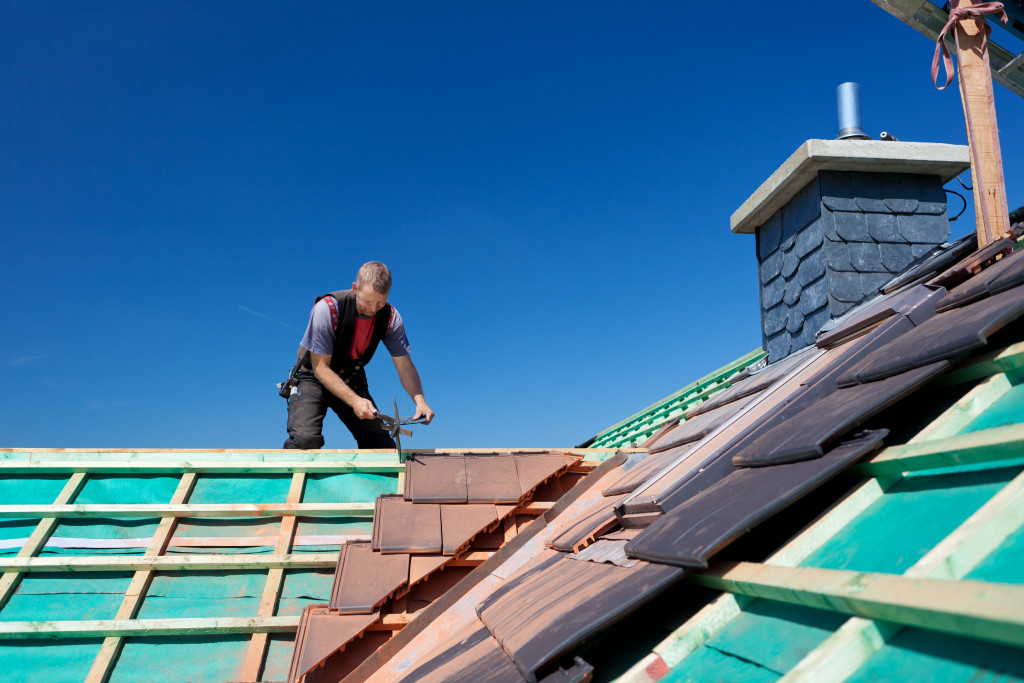Sometimes, the only thing that stands between you and a home repair disaster is a little preventative maintenance. Most home water damages start small but, if left unaddressed, can quickly turn into expensive repairs. To help you avoid costly repairs down the road, we’ve compiled a list of some of the most common home water damages and how to fix them so that you can avoid even larger repair costs in the future.

1. Leaky faucets
A leaky faucet may seem like a small problem, but it can actually waste a lot of water and lead to bigger issues down the road. When left unchecked, a leaky faucet can cause water damage to your walls and floors. It can also take a toll on your water bills as you’re essentially paying for water that you’re not even using. Fortunately, fixing a leaky faucet is typically a relatively easy task. If you’re not sure how to do it, there are plenty of online tutorials that can walk you through the process. But for starters, all you need to do is shut off the water supply to the faucet, remove the handle, and replace the washer.
2. Clogged drains
A clogged drain can also lead to bigger issues if not addressed. Not only will a clogged drain prevent water from flowing freely down the drain, but it can also lead to water spilling out onto your floors and walls, causing water damage. Clogged drains can also cause bad odors as the water stagnates. To prevent this, you should regularly clean your drains and be mindful of what you’re putting down them. This is especially true for your kitchen sink as grease and food can easily build up and cause a clog and your bathroom drains as hair can quickly lead to a blockage. Professional drain cleaning services can help if you are having trouble unclogging your drains on your own.
3. Foundation cracks
A foundation crack may not seem like a big deal, but it can actually be a serious problem. Foundation cracks can lead to water damage, mold, and even structural issues if left unaddressed. Fortunately, there are a few things you can do to help prevent foundation cracks and, if they have already occurred, to fix them. To prevent foundation cracks, you should make sure your home is properly insulated and sealed. If you already have foundation cracks, you can fix them with a patch kit or by hiring a professional. Note that larger foundation cracks should always be fixed by a professional as they can be difficult and dangerous to fix on your own.
4. Roof leaks
A roof leak may not seem like a big deal, but it can obviously lead to some serious problems. Water can easily seep through a roof leak and cause water damage to your ceilings, walls, and floors. It can also lead to mold and mildew growth. To prevent a roof leak, you should have your roof inspected regularly and repaired as needed. Many roofing companies offer preventative maintenance plans that can help you keep your roof in good condition and avoid costly repairs down the road. If you already have a roof leak, you should have it repaired as soon as possible to avoid further damage.
5. Damaged gutters
Your gutters play an important role in protecting your home. They help to redirect water away from your home, which can prevent water damage. When gutters are damaged or not properly maintained, they can’t do their job properly and cause water damage that they’re supposed to prevent. To avoid this, you should make sure your gutters are in good condition and free of debris. You should also make sure they are properly attached to your home. If your gutters are damaged or need maintenance, you should have them repaired or replaced as soon as possible.
6. Window leaks
Window leaks can also lead to water damage, especially if they are not addressed right away. Water can seep through cracks and gaps in your window frames and cause damage to your walls, floors, and ceilings. It can also lead to drafts and increased energy bills. To prevent and fix window leaks, you should seal any cracks or gaps in your window frames and install weatherstripping around your windows. You should also make sure your windows are properly sealed when you close them.
Water damage can be a serious problem, and it’s important to take steps to prevent it from happening in the first place. By following the tips in this article, you can help protect your home from water damage and avoid costly repairs.

